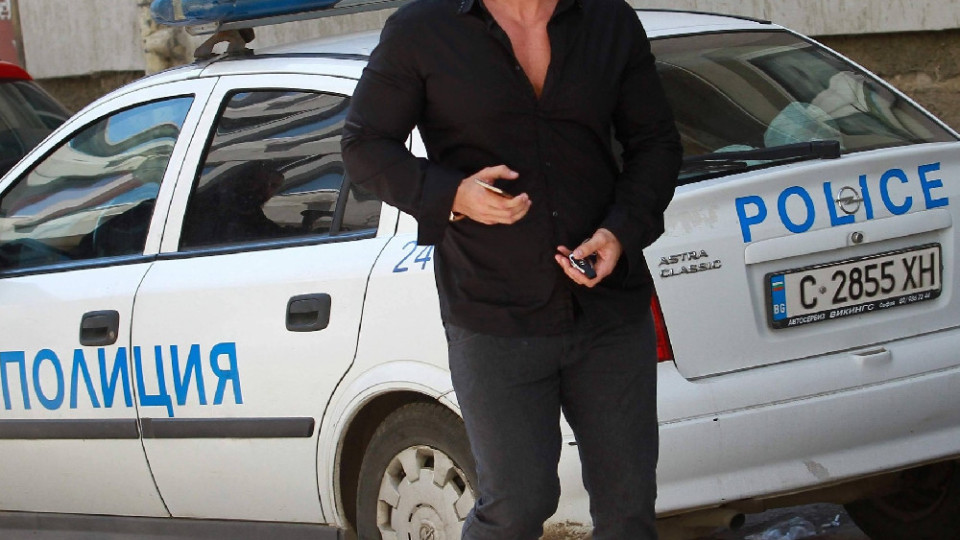“Bansko must die!” This is the guiding principle of the alleged “green” activists in Bulgaria and the slogan of a relentless war waged by a handful of particularly vocal and hyper aggressive leaders for tens and hundreds of millions of levs that must be appropriated for “rehabilitation” of territories in Pirin Mountain that were totally “ruined” by skiers. Notably, the most active participants in such protests have never practiced any sport in their lives and for some of them it would prove physically impossible to pass through the door of a cableway cabin. Several supporters uncontrollable in their emotions are enough to keep the fire of the protest burning. They squeal and scream, weep and sob, and explain how “criminals ruined and poisoned our land” in Greta-told-me-so style.
The “environmentalists” are spouting that they do not need ski, they are happy to just breathe the clean air in nature and any endeavour connected to sports that requires infrastructure is harmful to Mother Earth.
These dramatic statements have, in fact, been lined for years with the endless greed of several experts in appropriation of funds under green projects. Everyone in Bulgaria knows that between 2400 and 4100 vehicles (depending on the season), as counted using surveillance camera footage, enter Pirin National Park every day. Only the noise of the engines and the vibrations of their tires are enough to chase away any living creature within a radius of tens of kilometres. But this, apparently, is not a problem. There would be a problem, if a cableway was built. There would be a problem if similar resorts that cannot even be approached by car were compared to any place in Pirin. It is easier to scream at the top of your lungs that the national parks in the Alps which are protected by UNESCO and host hundreds of kilometres of ski strips are not nearly as unique as our Pirin. They have nothing in common; they are insignificant world-famous national parks, while our mountain is like a cradle of landscape formations around the world.
For years now there have been no ecological reasons preventing the construction of the most environmentally friendly means of mountain transport so that the roads can be closed for cars forever. The people transported in the air above nature will be able to observe the animals roaming freely below, as it happens in Italy, Switzerland and Austria. Dolomiti Superski in Italy has 1200 of skiing tracks and 450 cable cars distributed on the territory of three protected nature zones.
If the “greens” want to really protect Pirin, they must insist on measures for entering the mountain and paid possibilities for camping. Tourists trekking to the high parts of the mountain must have a licensed guide. A quota should be introduced for the number of people per day allowed to take walks in nature. This practice has been established for years in the USA and South America. An increasing number of popular nature areas in Europe (be it national parks or popular tourist destinations) are introducing daily quotas and tickets are sold weeks, even months earlier.
During his visit in Bansko, the most famous living mountaineer in the world, Reinhold Messner, appealed for strict regulations for all mountain activities. People should not have the freedom to do whatever they please, wherever they please, especially in the role of tourists.
Many of the tracks in Bansko are in the open, on rocks without vegetation
There is no doubt that nature must be protected from the influx of people and, more so, from their waywardness! For this purpose, the mountains need tens of rangers to enforce order. And for them to receive decent salaries, the entry in National parks must be paid.
Secondly, if we want to protect the earth, its flora and fauna, we must pass above the protected territories. This is possible only by constructing the most modern and environmentally friendly means of transport – cable cars.
Some would immediately point to the negative effect of the cable car on the Seven Rila Lakes. Still the ascent there was planned not for ecological reasons but to make it easier for people to get to the top. Meanwhile, right under the cable, the earth is ploughed by SUVs and horse wagons. And no one is trying to stop this outrage.
It would be sufficient to introduce a daily fee for access to the Seven Rila Lakes, a ten times more expensive ticket for the cable car, a quota for the people that can enter, a ban for vehicles and horses, and the process will fall under control almost immediately. However, you will never hear such propositions from the greens. On the contrary! They do not want to be hated by everyone. In any case they are popular only among the few people who, from time to time, block the traffic in the centre of Sofia.
So, let us get rid of all illusions that the screams of the “greens” contain any thought of ecology and protection of anything. The aim is to appropriate as much European funding as possible to simulate eco-activities.
The effective approach in the fight against the modern environmentally friendly way to conserve Pirin is based on a favourite short story called Andreshko. We hate the rich, the investors, the ones that will profit. We hate the hotel owners and restaurant owners. They must all agonize and go bankrupt. The ones who want to ski are rich, let them freeze waiting on the long queue. They have money for outfits and tickets, so we must hate them because we love our country and we are not giving it away!
In the world of skiing Bansko remains a fantastic destination for top-class competitions. The fight – not a contest, not a race, but a real vicious fight – between the destinations for hosting the World Cup competitions is for the choice of such a place. Bansko has established itself as a desirable location and is moving forward by hosting new competitions. Next year the town will host the World Junior Alpine Skiing Championships. Soon after it will be the men’s turn to show what they are capable of. Two weeks later, again in Bansko, we will see the greatest female skiers from the white caravan. This speaks of class, professionalism, affirmed level.
How and why did the “greens” decide that specifically skiers are disturbing the mountain? The reason is prosaic: the more problems they make up, the more funding they can appropriate in order to “restore” the balance in nature.
The facts, however, are painful for the enemies of the upgrade of the sports part of Pirin: the ski zone - the whole of it, not just the tracks – occupies 2 percent of the area of the mountain. If another cable car is constructed and the tracks double in total length, the area will be under three percent. The count of the tens (or hundreds) of thousands of trees that will be cut for the purposes of constructing the lift and expanding the tracks is done by the greens in the same way as they are counting the animals that died in the Australian wildfires: somewhere between 500 million and a billion, but soon they may become two billion. Someone pronounces a number; an ignoramus quotes it in public and then the number enters the media headlines. Stupidity and ignorance win again!
What is outside of the interests of the “greens”? To tell Bulgarians, who are in love with their cars, that the access to the mountain on 4 wheels will be prohibited, meaning 60 – 80 thousand vehicles per year will not enter the mountain. Now this is ecology, but somehow the ecologists do not want to comment on this topic.
Their silence with regard to the real problems has become even more deafening on the background of the water crisis in Pernik when another ludicrous project idea was born:
To drain and destroy karst caves on Vitosha in order to direct the water to the residents of Pernik.
The National Association Bulgarian Black Sea pointed out that the idea is of the self-proclaimed hydrogeologist Atanas Rusev and the Ministry of Regional Development and Public Works (MRDPW) without a prepared ecological assessment and in violation of the Management Plan of Vitosha Park. There is no information about whether the Ministry of Environment and Water has been asked for an opinion.
The Association reminds that “two years ago the prime minister Borisov ordered to stop the renovation of a block of flats in the town of Aytos after receiving a signal that a bat was living in a crack in the facade. Then what will happen with the thousands of bats in Vitosha’s caves if they lose their shelter when they are at their most vulnerable, during their winter sleep in the period December 1 – March 30?”
The innovative idea would cost BGN 340 000, according to its author. The “green” activist and “conservationist” formulates the rescue of the people of Pernik from the water crisis through disrupting the water balance of the caves in Vitosha Nature Park and alteration of the river beds of Vitosha’s streams and rivers running along the southwestern slopes of the mountain.
The ecologists, however, refrain from taking a position and remain silent about the various ideas for obtaining water.
The “conservationist” and his friends from For Nature in Bulgaria keep silence, not saying that the karst waters on the southwestern slopes of Vitosha Nature Park fall in several protected zones and territories:
- Protected zones of Natura 2000 for conservation of birds: Vitosha and Palikariya;
- Protected zones of Natura 2000 for conservation of habitats and species, plants and animals: Vitosha and Palikariya River;
- Protected territory – natural landmark, Duhlata cave.
And all listed locations are on the territory of Vitosha Nature Park.
From Bansko we are slowly shifting to the long-suffering Vitosha to prove the fact that any idea for improvement of terrains on mountain territory are met with the hysterical opposition of the same people who would not mind drinking Vitosha’s water reserves with a straw. The cable cars that are still somehow working are dangerous for the people. And so, the same eco-enthusiasts are waiting for the moment when people will die because of a serious technical problem.
Meanwhile no one is mentioning a word about cleaning the mountain from dead trees, tracing the paths, constructing safe observation decks, renovating old cabins that can accommodate tens of tourists every weekend. It is not a matter of renovating cable cars or modernizing ski tracks. The worse the conditions are in the mountain left to its own devices, the more money can be appropriated.
In summary, we are entering the second decade of systematic “green” terror over whole regions in Bulgaria where people are not allowed to improve their economies and nature must degrade under the pretext that this is good for the land. The inability of the country to provide sensible and adequate care to natural sites is an expression of either incompetence or participation in the allocation of millions for eco-initiatives. There is no third option.
Source: Glasove.com






